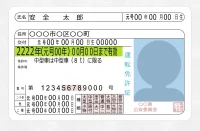Don't get in trouble at Japanese hospitals! Solutions for Foreigners

Japan is a world-famous tourist destination, attracting many foreigners. However, medical services and procedures in Japanese hospitals present some difficulties for foreigners.
Japan is a country that attracts many foreigners visiting for tourism and business. However, using medical facilities in a foreign country can be challenging due to language barriers and cultural differences.
In this article, we provide information to help foreigners use Japanese medical services smoothly. We hope we can help make using hospitals in Japan a safe and comfortable experience for foreign residents.
1: Points to consider when selecting a hospital

When foreigners choose a hospital in Japan, it is important to select one based mainly on language support, the quality of medical facilities, and the availability of medical specialists. Here we will explain the key points for foreigners in choosing a hospital in Japan.
Reception counter for foreigners
First is the reception counter, which is the first thing foreigners face when they arrive at a hospital. In general, mainstream hospitals often do not have adequate English-language support. Therefore, some advanced hospitals have set up reception counters with foreign language support. This allows foreign patients to proceed with procedures without worry or anxiety.
Interpretation Services
The language barrier is a major problem, but fortunately, many hospitals offer interpretation services in recent years. However, it is important to do your research in advance, as an appointment may be required. Some hospitals also offer professional medical interpretation services. This allows foreign patients to accurately communicate their situation and receive appropriate medical care.
Providing multilingual information
It is desirable that information and medical information in hospitals be multilingual. In practice, however, in some cases this is still insufficient. Therefore, some advanced hospitals are using QR codes and tablet terminals to provide information in multiple languages. Foreign patients can switch to their own language to obtain necessary information.
Identification of medical facilities and specialists
When a foreigner chooses a hospital in Japan, the important factors are the availability of medical facilities and specialists. Specialized knowledge and equipment may be required for specific medical conditions or symptoms.
Research on the Web
To find the right medical facility, visit the hospital's website and review in advance the services offered, medical facilities, and physician specialties. This will give you an idea of whether the medical services you are seeking are being provided.
Check word of mouth and reputation
You can also look up hospital reviews and word-of-mouth on the Internet to learn about the opinions and experiences of other patients. This will help you find the best and most reliable medical facilities for your location.
2: Reservation and reception expertise

In order to receive efficient medical services at Japanese hospitals, it is important to understand how to make an appointment and the reception process. This section details the specific methods and know-how.
Use of online reservations
These days, many hospitals offer online appointment booking services. This allows patients to complete their appointments on the hospital's website prior to their visit. By using online booking, foreign patients can also greatly reduce waiting time at hospitals. Some hospitals also offer online reservation services in English and other languages, so there is no need to worry about language barriers.
What you need to do at the reception desk
When you arrive at the hospital, first go to the reception desk and tell them what you need. Usually, you will need your insurance card, ID card, and consultation ticket. In addition, if this is your first visit to the hospital, you will need to go through the procedure at the New Patient Reception. Here, you may be asked for basic personal information and details about your health and symptoms.
Use of waiting time
After reception, you can spend the time waiting for your consultation to begin by reading a book you brought with you or using your smartphone. Many hospitals also offer free Wi-Fi service so you can use the Internet. Some hospitals also offer SMS or apps to inform you of the length of your waiting time, so you can go out and make the most of your time.
Procedures after consultation
Upon completion of your consultation, you will receive the results of your examination and your prescription at the reception desk. Please keep these documents in a safe place, as you may need them to pick up your prescription medication at the pharmacy or for your next visit. Also, do not forget to pay the consultation fee. More and more hospitals are accepting payment by credit card or electronic money.
What to do in an emergency
For urgent conditions for which an appointment is not available, you will need to use an emergency hospital. Check the nearest emergency hospital in advance and remember to take down the emergency contact number (110 or 119). Tell them exactly what your symptoms and condition are, and head to the medical facility as soon as possible.
3: Insurance and Payment Mechanisms

This section will explain in detail the features of the Japanese medical insurance system, specific ways to use the system, and how to use the insurance consultation service. With this knowledge, foreigners will be able to use medical services in Japan smoothly and efficiently. In particular, the use of insurance is essential to reduce the financial burden.
Features of Japan's Medical Insurance System
Foreign patients can also use the Japanese medical insurance system, but it is important to understand the features of the system and how to use it. The Japanese medical insurance system sets a low patient burden and reduces the burden of medical expenses.
The co-payment amount for medical expenses varies depending on the health insurance coverage and the insurer's age, but in general, foreigners are expected to pay 301 TP19T of medical expenses as co-payments, the same as Japanese nationals. However, the co-payment amount may differ depending on the hospital or department.
How to Use Insurance
The Japanese medical system may differ from that of other countries. In order for foreigners to use medical insurance in Japan, they must first enroll in health insurance. In addition, the method of enrolling in health insurance differs for foreigners depending on their employment status and status of residence.
Foreign nationals working as laborers are enrolled in health insurance by their employers. The employer is obligated to deduct health insurance premiums from the foreign worker's salary and enroll him or her in the insurance plan. Foreign workers themselves are also required to enroll in the insurance by filling out the necessary information on the forms provided by their employers.
Foreigners working as self-employed or freelance workers are generally enrolled in either the National Health Insurance or the Late-Stage Medical Insurance for the Elderly. National Health Insurance is administered by municipalities, and self-employed and freelance foreigners are required to apply for and pay premiums to the municipalities. Late-stage medical insurance for the elderly applies to foreigners aged 65 and over. Enrollment methods and procedures are the same as those for National Health Insurance.
Use of insurance consultation services
At the specialized consultation service, foreign patients are given detailed information on how to use the insurance and the necessary procedures. This allows foreign patients to use Japanese medical insurance properly and receive medical services with peace of mind.
Generally, each hospital or clinic has its own insurance consultation service. In addition, public facilities and international exchange centers in municipalities may also offer medical and insurance consultation services for foreigners, so please check the website of your local city, ward, town or village.
4: Hospital Manners and Culture

This section introduces cultural differences and hospital etiquette in Japanese hospitals. It is important to understand the cultural differences and take into consideration the hospital's own considerations so that visitors from other countries can behave and act appropriately in the hospital.
Understanding of cultural differences
In Japan, courtesy in the doctor's office is highly valued. Patients always bow toward the doctor to show respect. They are also expected to listen to the doctor's instructions and take them seriously. This is considered an important factor in building trust between doctor and patient.
In addition, it is common for patients to wait relatively long periods of time in Japanese doctor's offices. This is to allow the doctor sufficient time to listen to the patient's symptoms in detail and to make an appropriate diagnosis and treatment. In addition, patients are sometimes late for their appointments, which can lead to longer-than-expected waits.
Hospital Considerations
Hospitals also need to be considerate to foreign patients. By making cultural considerations that are easy for foreign patients to understand, patients can use medical services with peace of mind.
For example, multilingual information boards and pamphlets are provided to help foreign patients navigate smoothly through the hospital without getting lost. In addition, professional interpretation services and translation apps are provided to facilitate communication with doctors and nurses without any language barriers.
In addition, cross-cultural understanding education programs are in place, whereby medical staff learn about the cultural backgrounds and customs of foreign patients. This allows them to be sensitive to patients' religious beliefs, dietary restrictions, and culture shock.
In addition, cross-cultural facilities and services are provided in patient rooms and waiting areas. For example, religious beliefs are taken into consideration and spaces are provided for prayer areas and religious ceremonies. In addition, menus may be provided to accommodate the dietary restrictions and preferences of international patients.
summary
Using medical services at Japanese hospitals can seem daunting to foreigners due to language barriers and differences in the system. However, with advance preparation and knowledge, as described in this article, these difficulties can be overcome. By understanding how to choose a hospital, the appointment and reception process, how to use medical insurance, hospital etiquette, and cultural differences, and by taking appropriate actions, foreigners can feel comfortable using Japan's high-quality medical services.






